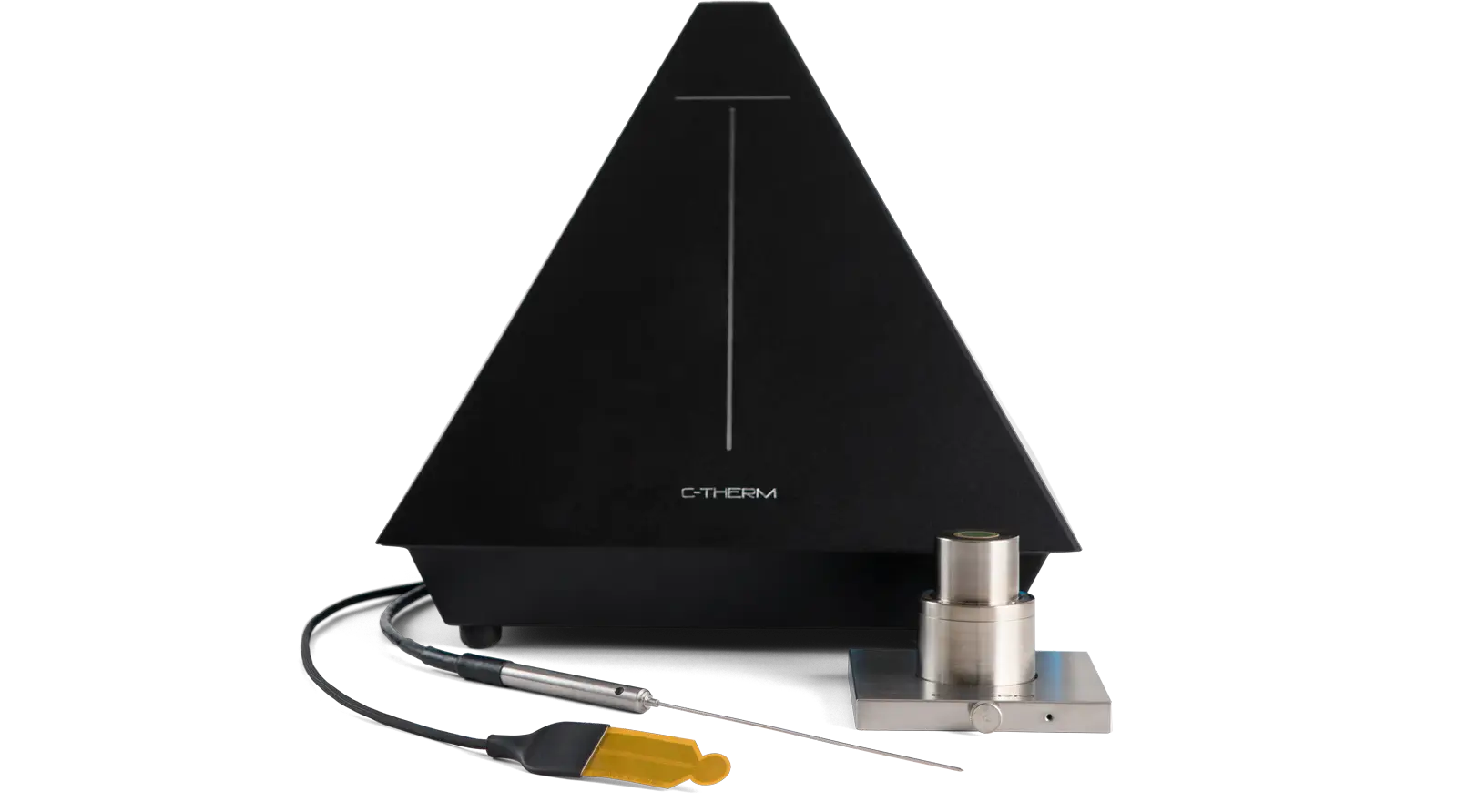LabroTek provides cutting-edge thermal conductivity testing instruments that deliver exceptional accuracy and reliability for all your material characterization needs. Our comprehensive range of solutions supports applications across research and development, manufacturing processes, and quality control operations

Our thermal conductivity measurement instruments provide reliable data on material thermal properties:
For advanced thermal property characterization:
Our specialists help you identify the ideal equipment for your specific applications and requirements
Professional setup and comprehensive operator training to ensure optimal performance from day one
Dedicated assistance throughout your equipment's service life, including troubleshooting and updates
Regular service programs to maintain accuracy, compliance, and maximize operational uptime
Our thermal conductivity testing solutions incorporate cutting-edge technology to deliver exceptional measurement performance:
Advanced sensors that rapidly measure thermal properties without requiring thermal equilibrium, significantly reducing test times while maintaining high accuracy
Versatile systems offering the ability to measure thermal conductivity, thermal diffusivity, and specific heat capacity with a single instrument
Instruments capable of testing materials from high thermal insulators to thermal conductors across extensive temperature ranges
Sample-friendly methods that preserve material integrity while providing accurate thermal property measurements
Equipment designed to meet ASTM, ISO, DIN, and other global testing standards for thermal property measurements
Thermal conductivity testing instruments are essential across numerous sectors:
Evaluating the energy efficiency of construction materials, insulation products, and building components
Testing thermal interface materials, heat sinks, and electronic components for thermal management
Analyzing thermal properties of composites, battery materials, and thermal protection systems
Determining thermal conductivity and diffusivity of plastics, fiber-reinforced materials, and advanced composites
Characterizing thermal behavior of battery components, phase change materials, and energy storage systems
Measuring thermal properties for processing optimization, packaging design, and quality control
Supporting advanced materials development with precise thermal characterization capabilities
Thermal conductivity measures a material's ability to conduct heat (W/mK), while thermal diffusivity indicates how quickly temperature changes propagate through a material (mm²/s). Specific heat quantifies the energy required to raise a material's temperature by one degree (J/gK). Together, these properties provide a comprehensive understanding of a material's thermal behavior. Many LabroTek instruments can measure multiple properties simultaneously.
The ideal method depends on your material type, sample form, and testing objectives. Transient methods like Modified Transient Plane Source are excellent for rapid testing of various materials, while steady-state methods may offer advantages for specific applications. LabroTek specialists can help determine the optimal testing approach for your unique requirements.
Sample preparation varies significantly by method. Contact-based transient methods typically require flat, smooth surfaces with good contact to the sensor. Laser flash methods need thin, disc-shaped samples. Some methods can test powders, liquids, or pastes with minimal preparation. Our experts can guide you through the specific sample requirements for your application.
Yes, many thermal conductivity analyzers offer temperature-controlled testing environments. Our equipment ranges from systems that test at ambient conditions to specialized instruments capable of measurements from cryogenic temperatures (-196°C) to high temperatures (1000°C+), allowing for comprehensive characterization of thermal behavior across temperature ranges relevant to your application.
Modern thermal conductivity analyzers typically achieve measurement accuracies between 2-5% for most materials when operated according to standard procedures. Precision and reproducibility are often in the 1-2% range. Specialized high-precision instruments can achieve even better accuracy for specific applications or research needs.
Measurement time varies by method and material. Transient methods often complete measurements in seconds to minutes, making them ideal for rapid testing. Steady-state methods typically require longer equilibration times, ranging from 30 minutes to several hours. The latest instruments from LabroTek emphasize efficiency without sacrificing accuracy.
Most modern thermal conductivity testing methods are non-destructive, allowing samples to be reused for other tests. However, sample preparation may involve cutting or forming materials to specific dimensions. Some high-temperature tests may alter material properties if conducted above transformation temperatures. Our specialists can recommend methods that minimize sample alteration.
Common standards include ASTM D5334 and IEEE 442-1981 for thermal resistivity, ASTM C518 for steady-state thermal transmission properties, ASTM E1461 for thermal diffusivity measurements, and ISO 22007 for plastics. LabroTek's instruments are designed to comply with these and many other international testing standards.
Yes, specialized sensors and test configurations are available for measuring thermal properties of liquids, pastes, powders, and other non-solid materials. Modified transient plane source methods are particularly effective for these challenging sample types. LabroTek offers dedicated solutions optimized for accurate measurement of difficult-to-test materials.
ROI comes from accelerated material development, improved quality control, reduced energy costs through better insulation design, and enhanced product performance. For companies developing thermal materials or products where thermal management is critical, testing equipment often pays for itself by preventing costly design flaws, reducing development cycles, and enabling innovation in thermal performance.